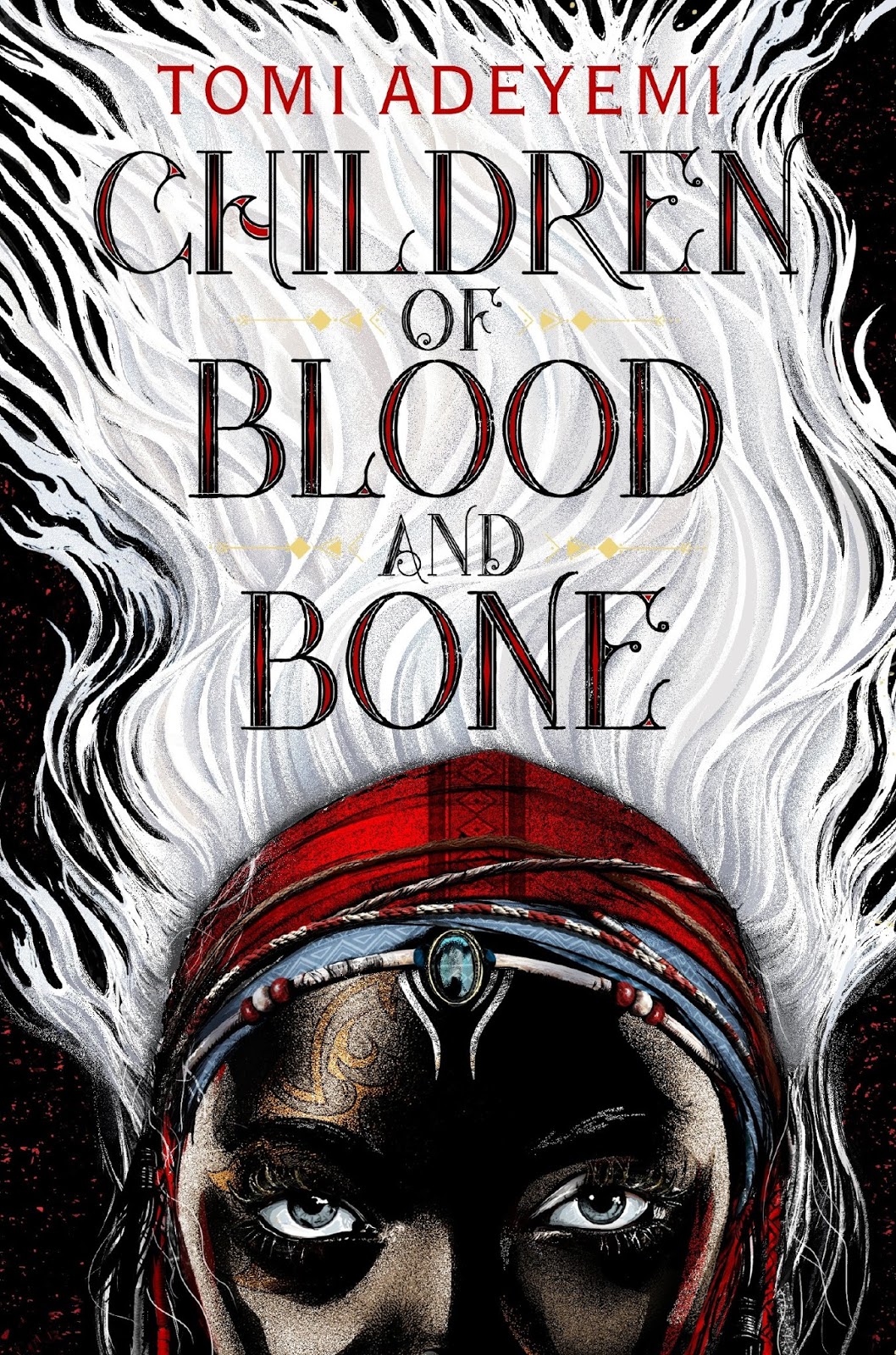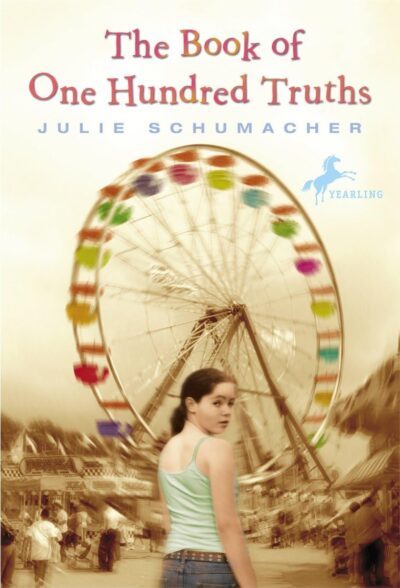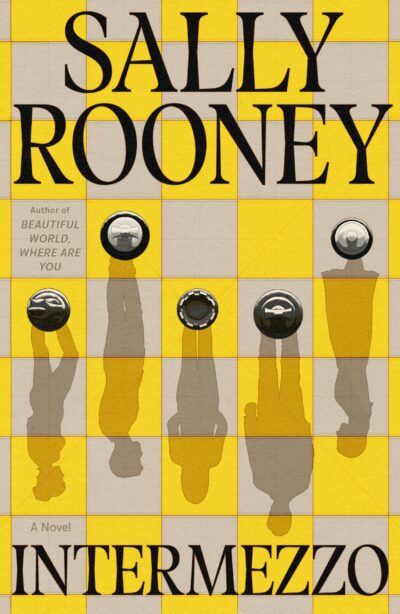Describing My Experience
As I shared in class, the beginning of my experience with Children of Blood and Bone by Tomi Adeyemi was rough. Since I do not usually read fantasy books it was difficult for me to get the motivation to get started, and once I did, I felt wildly confused by all the information I was consuming. Since fantasy literature allows authors a wider range of creativity, they weave new ideas and established fantastical concepts into their work, neither of which I am familiar with, so it makes it harder for me to process what I am reading without searching up words constantly. This need to constantly figure out what I am reading takes me out of the immersion and makes the experience less enjoyable for me. I am also notoriously awful with names, so not being able to match names to faces is something I struggled with. However, after reading for a little while more concepts started to make sense, and I could better identify characters after they came up multiple times. From what I have read so far, I love the main character Zelie. She is complex in ways a lot of female characters have not been allowed to be. She is tough, determined, and dedicated to doing what is right for her people as she ventures to reconnect them with the Gods and end their oppression from the monarchy that took away their magic. However, she is also short tempered which puts her family in danger and is tough on herself, never believing she is doing enough to keep her family safe. Often people dislike female characters for these characteristics, but they make the character feel real to me, since I can only imagine what years of oppression and living in fear could do to someone. Though I did not get to complete the book before writing this post, I am excited to continue reading and see where the rest of the story goes.
Classifying My Experience
I am in awe of Zelie. Despite what she has been through, she agrees to help Princess Amari, daughter of the King who killed Zelie’s people and took away their magic, despite her hatred toward nobility. Amari told Zelie how the scroll could bring magic back, and Zelie had no reason to trust her, but she did anyway since it gave her a chance to save her people, the Maji. She put aside her negative feelings for the greater good, something I am not sure I would be able to do if put in the same situation.
“I step closer, studying the scroll. Tzain’s disbelief sticks to me like the heat in the air, yet the more Amari speaks, the more I dare to dream. There was too much terror in her eyes. A genuine fear for her well-being. Why else would half the army chase down the princess if her escape didn’t pose some great risk?” (Adeyemi 72)
As noted before I also felt confusion. So many concepts, names, and plotlines were introduced in the beginning of the story that at first I had a hard time following. It was hard to distinguish between character names and names of the different races in the story since I had never come into contact with these words before. As I said earlier with a little repetition and grace given to myself, I did eventually get the hang of it.
I feel empathy for many of the characters. Zelie and her brother Tzain bicker often in the beginning of the book, initially about Zelie leaving their father alone which lead to him almost drowning trying to catch more fish to pay increasing taxes. I feel for Tzain because he trusted his sister to keep their partially disabled father safe and she broke that trust, I also feel for Zelie as she had left to train in fighting, trying to make sure she could keep herself and her family safe if they were ever threatened. I do not agree they should be mad at each other since it was the guards and ultimately the monarchy’s fault their father almost drowned, I do understand both of their knee jerk reactions to snap at someone that will not hurt them. Yelling at a guard would have a much more dire consequence, so they are able to air their grievances at each other and stay safe, a necessary outlet for both of them.
“‘Zelie!’ Tzain shouts with an edge that indicated this isn’t his first attempt to grab my attention ‘Why’d you leave him? It was your turn to stay!’ ‘Today was the graduation match! If I missed it-‘ ‘Dammit, Zel!’ Tzain’s roar made the other villagers turn. ‘Are you serious? You left Baba for your stupid stick?’ ‘It’s not a stick, it’s a weapon” I shoot back “And I didn’t abandon him. Babe overslept. He needed to rest. And I’ve stayed every day this week-‘ ‘ Because I stayed every day last week!'” (Adeyemi 25)
I also feel empathy for Amari. She has no control over the family she comes from and immediately shows how different her morals are by stealing the scroll from her father so he can no longer hide it from its rightful owners. She has little experience with life outside of the castle walls, so despite my initial reaction to be mad at her for not running fast enough or knowing what to do in stressful situations, I do feel for her.
Righteousness may have been the main emotion I felt while reading this story. The world is set up by the author to be cruel and oppressive to the main character because of her race, an act that will always anger me no matter the circumstance. Every decision the characters make is affected by this act so it is hard to read the novel and not be constantly angry for the main character and everything she has had to endure.
Features That Prompted My Experience
The author’s world building likely prompted my experiences. As discussed before the oppression and violence Zelie constantly faces makes it easy for the reader to root for her and against the monarchy that has harmed and unfairly persecuted an entire race of people. Also, the POV the story is told from changes between chapters, initially between Zelie and Amari, then between Zelie and Amari’s brother Prince Inan. This POV switch gives the reader a better understanding of what is happing from multiple perspectives which gives us more context to form opinions and understand the story in depth. Even though I believe Inan’s beliefs are awful and racist, getting his perspective helps the reader understand why he thinks the way he does as a sheltered prince who has only gotten the version of history and the world his father had taught him.
(A quote from Inan’s chapter) “Growing up, Father led me to believe that those who clung to the myth of the gods were weak. They relied on beings they could never see, dedicating their lives to faceless entities. I chose to place my faith in the throne. In Father. Orisha.” (Adeyemi 181)
Narrative Technology
Narration
Disagreeing narrators was not a narrative technology I was expecting to see in this story. Nothing I read about the book beforehand mentioned a narrator switch, so hearing from Amari and Inan was interesting. Zelie and Inan have very different perspectives on the world, Zelie sees the monarchy as oppressive and violent, an evil that needed to be stopped, while Inan sees what the monarchy had done as necessary, believing the magic users were savages that needed to be tamed.
All narrators speak in the I Voice, making their chapters feel more personal as you get to know what they do, how they feel, and what they are thinking. The reader gets to better understand character’s motivations and histories from personal perspectives that helps the reader better understand the character and how they interact with the world around them.
(Inan’s POV of Amari) “A thousand thoughts race through my mind. I try to latch onto the facts: magic in Orisha; an ancient scroll; treason by Amari’s hand? It’s not possible. Even if I could believe the magic, I can’t accept the sister’s involvement. Amari can barely speak at a banquet. She lets Mother dictate her clothes. Amari’s never spent a day outside these walls, and now she’s fled Lagos with the only thing that can bring down these walls?” (Adeyemi 76)
Storyworld
Zelie and Inan being disagreeing narrators helps open up the story world the author created. Reading a story from one perspective can be more than enough to help readers understand the world the author is trying to create, but disagreeing perspectives help readers hear different sides of a story. This opens readers up to perspectives, histories, and character motivations they would not be privy to with one narrator. Multiple perspectives of a story paint a more detailed picture of the established world that can help the reader better understand the story. This difference in existence can be seen in the difference of the introduction of two of the main characters, Zelie and Inan.
(Zelie) “Hatred simmers beneath my skin, prickling sharp and hot. This isn’t right. Mama Agba shouldn’t have to beg. I lift my gaze and catch the guard’s eye. A mistake. Before I can turn away or mask my disgust, he grabs me by the hair” (Adeyemi 17)
(Amari’s POV of Inan) “My brother strides through. Inan stands tall, handsome in his uniform as he prepares to lead his first patrol through Lagos. He beams among his fellow guards, his decorated helmet reflecting his recent promotion to captain.” (Adeyemi 36)
Plot
Amari apologizes to Zelie early on, telling her she understands why Zelie does not like the king. Though this seems to be a small moment, it is the start of a better relationship between the girls after a rocky start filled with resentment and doubt from Zelie. This strengthening relationship will likely help the girls as they fight toward the same goal, restoring magic to Zelie’s people.
The story I have read so far seems to be a set up for a revenge plot. Zelie wants to take the scroll, and the other elements I have yet to read about, so she can bring magic back to her people. She takes on this mission so the Maji can start to fight back after years of oppression, previously thinking about how differently “The Raid”, an event before the events of the book where many magic users were murdered, would have gone if they had their magic to fight back. If magic returns, the Maji are likely to take revenge on the monarchy and others they feel have oppressed them.
“After I perform the ritual and bring magic back, after Baba is safe and sound. I’ll rally a group of Grounders to sink this monstrosity into the sand. That announcer will pay for every wasted divîner life. Every noble will answer for their crimes.” (Adeyemi 183)
Character
The opportunity to observe plays a big part in Inan’s story. After realizing he had somehow become magical, he faces a lot of emotions, mostly anger and fear, much like the magic users. He knows his father will kill him if he finds out about Inan’s powers, so out of fear he conceals them and lashes out at anyone who finds out about his magic. The reader observes this rollercoaster of emotions from Inan, going on this emotional journey with him as they both try to understand what is happening and how he is feeling.
“As my vision fades, I return to the screaming villagers and the shifting sand. Something stings under my skin, the same bite that started when I first saw the diviners face. Suddenly all the pieces come together. The thrashing. The vision. I should’ve known all along. Magic… My stomach twists in knots. I rake my nails over my tingling arm. I have to get this virus out of me. I need to rip the treacherous sensation from my skin-” (Adeyemi 95-96)
Zelie’s character also gives the reader the opportunity to observe. We get to see her constantly dealing with harassment and even physical assault because of her race and we also get to see how she feels about it. She cycles through many emotions in the story, including anger, resentment, fear, and determination. The reader gets to follow her in this emotional rollercoaster, which in hindsight is similar to Inan’s her emotions are just aimed at different people.
Works Cited
Adeyemi, Tomi. Children of Blood and Bone. New York Henry Holt And Company, 6 Mar. 2018.
Featured Image
Book cover for Children of Blood and Bone © Henry Holt Books for Young Readers. All Rights Reserved.




